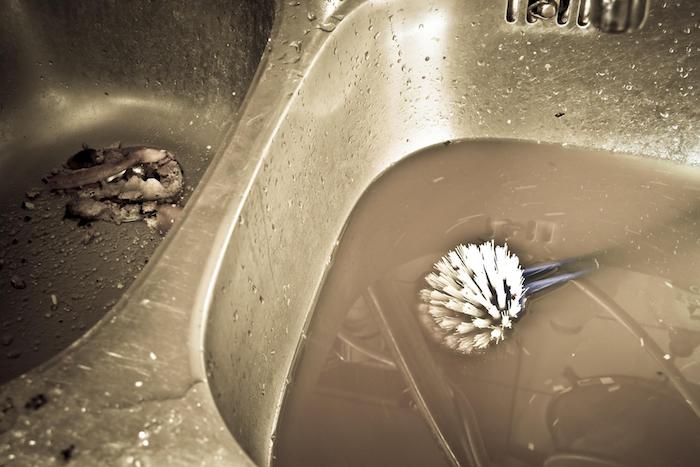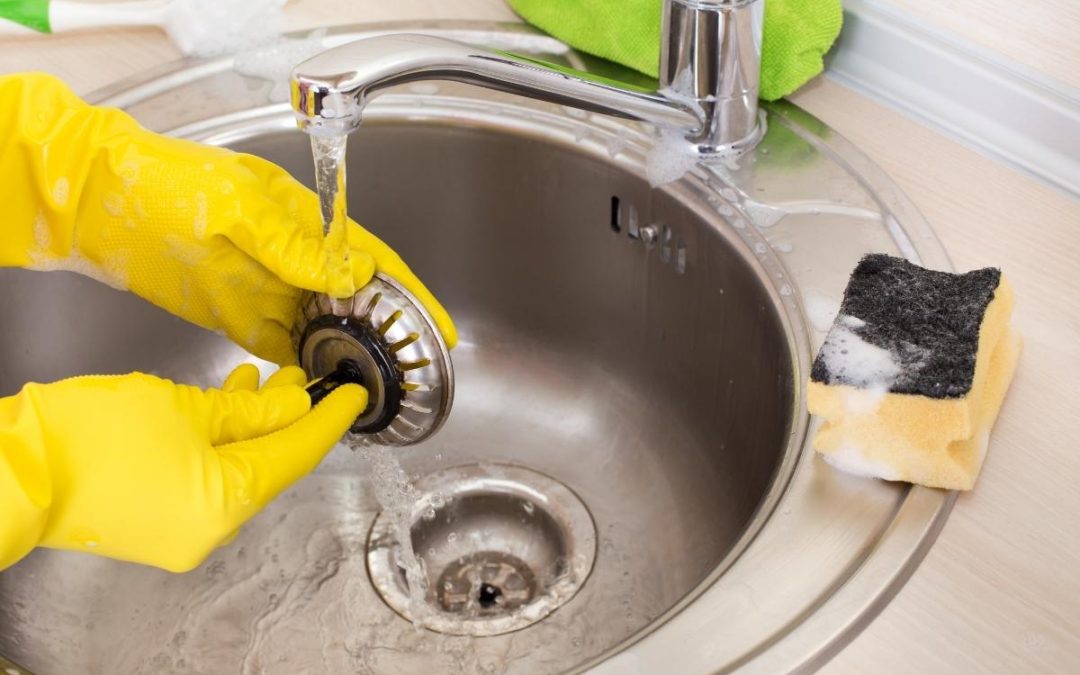Ways To Repair A Slow-Draining Sink
Ways To Repair A Slow-Draining Sink
Blog Article
The publisher is making a few great pointers on Three Common Ways to Fix a Slow Drain in general in this article which follows.

Intro
We have actually all been there: You're cleaning your teeth or washing your hands, and you discover the water pooling in the sink. As opposed to swiftly swirling down the drain, it lingers, turning your once-refreshing morning regimen into a small swamp scene. A slow-draining sink isn't just annoying; it's usually an indication of bigger pipes issues lurking under the surface area. Fortunately is that the majority of slow-draining sinks can be repaired with a little knowledge, a few basic tools, and some persistence. Prepared to tackle this project head-on? Let's roll up our sleeves and dive right in.
Comprehending the Reasons For a Slow-Draining Sink
Prior to you start poking around in your pipes, it aids to know what could be creating the downturn. Understanding the root cause makes it easier to pick the right fix.
Common Culprits Behind Slow Water Drainage
So, what's obstructing points up? Generally, it's a mix of everyday particles-- believe hair, soap scum, tooth paste residue, and leftover food particles. With time, these tiny bits gather and hold on to the pipeline walls, slowly narrowing the passage and making it harder for water to travel through. Sometimes, mineral deposits from tough water can also include in the crud, creating the excellent tornado for stubborn blockages.
When is it Time to Act?
If you notice the water draining pipes slower than typical, it's a good idea to intervene faster as opposed to later on. Waiting also long could cause complete blockages, unpleasant odors, or even pipeline damage. If the water takes greater than a few seconds to clear out after shutting off the faucet, consider it a red flag and get ready to put on your do it yourself hat.
Tools and Materials You'll Need
The right tools make all the distinction. The good news is, you won't need a totally equipped plumber's van to finish the job.
Essential Tools for Do It Yourself Services
A bettor is your go-to starting factor. A little, sink-sized bettor creates suction that can dislodge minor clogs. For more consistent obstructions, a drainpipe serpent (occasionally called a plumbing's auger) works wonders. A pair of gloves, a flashlight, and possibly a set of safety goggles are also useful.
Recommended Cleansing Solutions
Moderate dish soap and warm water can help break down oily accumulation. A mix of cooking soda and vinegar is a reliable home remedy, and chemical cleaners supply an even more green strategy. Maintain chemical drain cleaners as a last option, as they can be extreme on your pipelines.
Security First: Preventative Measures and Preparations
Prior to you launch into unclogging mode, consider safety. You're handling possibly filthy water and debris, so slip on a pair of gloves. If you're making use of chemical cleansers, guarantee the space is well-ventilated and follow the instructions on the tag.
Safety Gear and Work Space Setup
Lay down some old towels or dustcloths around the sink location to catch sprinkles. Clear away any type of things that might get in your way, like soap dispensers or toothbrush owners. Make certain you have great illumination-- get a flashlight if needed.
Step-by-Step Overview to Fixing a Slow-Draining Sink
Currently, let's get into the nitty-gritty. This detailed process will certainly assist you with simple methods to recover your sink's drainage.
Action 1: Get Rid Of and Tidy the Stopper
Typically, the stopper (that tiny plug you push down to block water) is the very first perpetrator. Remove it very carefully and wipe any type of hair or substance entraped around its base. Wash it extensively prior to placing it back in position.
Action 2: Utilize a Bettor to Remove Debris
Got that plunger ready? Position it over the drain and give it a few firm pumps. The idea is to produce suction that can loosen any obstruction. If you see little bits of particles floating up, you're on the best track.
Step 3: Try a Drain Snake or Cord Wall Mount
If the plunger does not suffice, it's time to draw out the drain serpent. Carefully feed it right into the drain and twist as you go. You may feel some resistance-- that's likely the obstruction. Keep turning and pulling till you eliminate the obstruction. If you do not have a drain serpent, an aligned cord hanger can work in a pinch.
Tip 4: Use a DIY Drain Cleanser
An all-natural cleaner made from baking soda and vinegar can break down recurring crud. Put half a cup of cooking soda right into the drainpipe, followed by half a mug of vinegar. Allow it fizz for about 15 minutes, after that flush with hot water. This chain reaction commonly does marvels for small obstructions.
Tip 5: Rebuild and Examine the Sink
Placed everything back together and run the tap. Does the water currently swirl away at a decent speed? If yes, give yourself a pat on the back. Otherwise, do not anguish-- there are still a couple of more tricks up your sleeve.
Alternative Approaches for Stubborn Clogs
Not all obstructions are produced equal. If your sink still refuses to coordinate, take into consideration these alternate solutions.
Sodium Bicarbonate and Vinegar Approach
We currently touched on this, however it's worth keeping in mind once again. This mild, environmentally friendly technique is safer than chemical cleansers and commonly fairly effective.
Enzymatic Drain Cleansers
Enzyme-based cleansers use natural microorganisms to digest raw material. They're an outstanding selection if you're wanting to stay clear of severe chemicals. Simply remember, they may take a bit longer to work their magic.
Chemical Drain Cleansers: Advantages And Disadvantages
Chemical cleansers can blow up via challenging obstructions quickly, but they're not without drawbacks. They can generate heat and fumes, damages pipelines if made use of excessively, and pose environmental risks. Utilize them moderately, and constantly adhere to the instructions thoroughly.
Preventive Measures to Maintain Your Sink Flowing
Avoidance is the very best cure. By adopting a few easy behaviors, you can keep your sink from decreasing to begin with.
Normal Cleansing Routines
Wipe down the sink container and fixture location regularly. Eliminate hair or food fragments before they have an opportunity to wash down the drain.
Preventing Damaging Materials Down the Drain
Hesitate before unloading coffee grounds, grease, or fibrous veggie scraps down the sink. These wrongdoers cling to pipe wall surfaces, developing blockages in time.
Regular Maintenance Checks
Arrange a quick regular monthly evaluation. Run hot water with the sink for a couple of minutes, paying attention to the circulation. If it seems slow-moving, act quick prior to it ends up being a full-on blockage.
When to Call a Specialist Plumbing
Often, despite exactly how difficult you try, that obstruct simply will not budge. That's when it's time to generate the pros.
Indications That Suggest a Much More Major Issue
If your sink drains pipes slowly regardless of several attempts, or if you notice water supporting in other components (like your shower or toilet), you might have a much more serious pipes issue hiding much deeper in the system.
Balancing Do It Yourself Efforts with Specialist Help
While DIY can conserve you money and provide a feeling of achievement, there's no embarassment in calling a specialist. A specialist plumbing professional can analyze your whole pipes setup, ensuring there's no underlying damage or long-term problem that might cost you a lot more later on.
Contrasting Prices and Long-Term Solutions
Prior to making a decision, consider the big picture. An economical, quick fix could address the trouble temporarily, but investing in an extra irreversible option might save you money and tension in the long run.
Weighing the Expenditures of Do It Yourself vs. Professional Solutions
DIY solutions usually set you back little greater than the price of a bettor or a bottle of cooking soda. Specialist services, on the other hand, featured a price tag however might avoid repetitive problems and costly fixings later.
Buying Top Quality Fixtures and Upgrades
If your sink's style adds to constant clogs, it could be worth updating to higher-quality components or changing the plumbing design. Consider this a financial investment in your house's capability and comfort.
Final thought
A slow-draining sink can feel like a small irritability, yet it's typically an indication that your plumbing needs a little tender loving care. By recognizing the source, utilizing the right tools and techniques, and devoting to basic safety nets, you can maintain your sink flowing openly. And when all else stops working, never hesitate to contact a specialist-- your home's plumbing deserves the investment in treatment and maintenance.
Three Common Ways to Fix a Slow Drain
Baking Soda Method
Boil a full pot of water. Measure out cup of baking soda and pour it down the drain. Then take cup of the magical cleansing substance known as white vinegar and drop that down there too. Allow the mixture to fizz in the drain for five minutes as the vinegar and baking soda combine. Now dump in that whole pot of boiling water. This combination of cleaning substances should clear out anything that is causing your sink to drain slowly. If it doesn t...
Zip-It
If the baking soda method doesn t clear out your drain, it may be because a significant amount of hair and/or other debris has collected there and you need to remove it. Purchase a Zip-It tool at any home improvement or hardware store and insert it into your drain. It will catch any collected hair or debris that s blocking the flow of water. Pull it out. If it s got a big clump of hair, etc. on the end, you ve probably got your culprit.
Drain Cleaner
If these methods don t work, there is the standard drain cleaner that you can also buy in a hardware store or even your local grocery store. It s better if you can use a household solution, but these drain cleaners often work in a pinch. They re very simple to use. You generally just dump them in your drain and wait. If even this method is not effective, it may be time to call the plumber.
https://www.mrrooter.com/oneida/about-us/blog/2017/july/three-common-ways-to-fix-a-slow-drain/

I recently found that post about Solved! How to Fix a Slow Sink Drain when looking around the search engines. Please take a moment to promote this entry if you enjoyed it. Thanks so much for taking the time to read it.
Check This Out Report this page